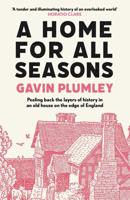Publisher's Synopsis
"A capsule history of American architecture since 1960." - Wall Street Journal
Architect, historian, and educator Robert A.M. Stern presents a personal and candid assessment of contemporary architecture and his fifty years of practice.
Encompassing autobiography, institutional history, and lively, behind-the-scenes anecdotes, Between Memory and Invention surveys the world of architecture from the 1960s to the present, and Stern's critical role in it. By turns thoughtful, critical, and irreverent, this is a highly accessible text replete with personal insights and humor.
The author is Robert A.M. Stern, once described by Philip Johnson as "the brightest young man I have ever met in my entire teaching career," and internationally acknowledged as a leader in architecture and architectural scholarship.
Deeply committed to the concept that architects must "look to the past to build for the future," Stern is the founding partner of Robert A.M. Stern Architects, the former Dean and current Hoppin Professor of Architecture at the Yale School of Architecture, and the author of more than twenty books and countless essays and commentaries on an extraordinary range of architectural and cultural topics.
Chronicling his formative years, architectural education, and half-century of architectural practice, Stern touches on influences that shaped him - his Brooklyn upbringing, family excursions to look at buildings, teachers (Paul Rudolph, the legendary Vincent Scully, and Philip Johnson among them), major projects of the firm (the new town of Celebration, Florida, restoration of Times Square and 42nd Street, George W. Bush Presidential Center), and the many clients, fellow architects, and professional partners that have peopled his extraordinary career.
Often proposed as "Mr. New York," Stern has a deep commitment to the city, to recording its past - he is the lead author of the monumental New York series, the definitive history of architecture and urbanism from the late nineteenth century to the present - and shaping its future.
Today elegant RAMSA residential towers are rising throughout Manhattan to enrich the skyline in the tradition of the luxurious apartment buildings of the 1920s and 1930s.
The text is supported by a lively mix of images drawn from Stern's personal archive, including student work and travel slides, images of architectural precedents and colleagues that have shaped his thinking, and images related to projects he discusses (drawings, plans, and finished photography, architectural team, and clients).









